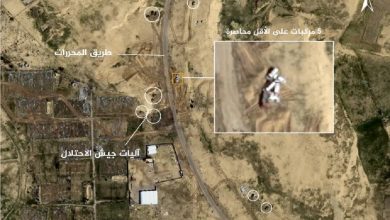Saudi Arabia Faces International Criticism Over Trial of British Citizen Ahmad Al-Douh
The arrest and trial of Ahmad Al-Douh highlight concerns over digital repression and human rights abuses in Saudi Arabia.
Watan-Saudi authorities are facing sharp criticism following the trial of British citizen Ahmad Al-Douh over a tweet that was deleted in 2018. This seemingly implausible story highlights the increasing repression within the Kingdom, where individuals are being charged based on their old digital activities.
Ahmad Al-Douh, 41 years old, was returning to the United Kingdom after spending his vacation in Saudi Arabia but was arrested at Riyadh airport last August. According to human rights sources, Al-Douh was held in solitary confinement for 33 days and subjected to intense investigations regarding his social media activity. It is believed that Saudi authorities interrogated him about a tweet on Sudan that he posted and deleted over six years ago.
The charges against him include “spreading false and harmful news against Saudi Arabia” and “maintaining a relationship with someone who poses a threat to national security,” which has raised questions about the validity of these allegations, especially since the authorities have not disclosed the identity of the alleged person.

Saudi Arabia’s Crackdown on Dissent: The Case of Ahmad Al-Douh
After his arrest, Al-Douh appeared in court last January, where he was informed of the formal charges against him. Despite having a lawyer appointed by the Saudi authorities, his wife revealed that the lawyer later denied knowledge of the case, which added to the ambiguity and controversy surrounding the fairness of the trial.
The British government attempted to intervene in the case, but Saudi authorities prevented them from accessing Al-Douh, amid reports that he was being denied necessary medication for his health condition. In light of these developments, international human rights organizations have expressed concern about Saudi Arabia’s continued use of strict laws against dissenters and activists, even if they are non-citizens.
This is not the first such incident, as many Saudi activists have faced severe penalties over old tweets, in what observers describe as a policy of digital repression used by the authorities to monitor citizens, residents, and even foreigners in the country.
As these practices continue, pressure is mounting on Saudi Arabia to improve its human rights record, especially as it seeks to attract foreign investments and enhance its image as an open country. However, Ahmad Al-Douh’s case raises serious questions about the future of freedom of expression in the Kingdom and its impact on international relations.






